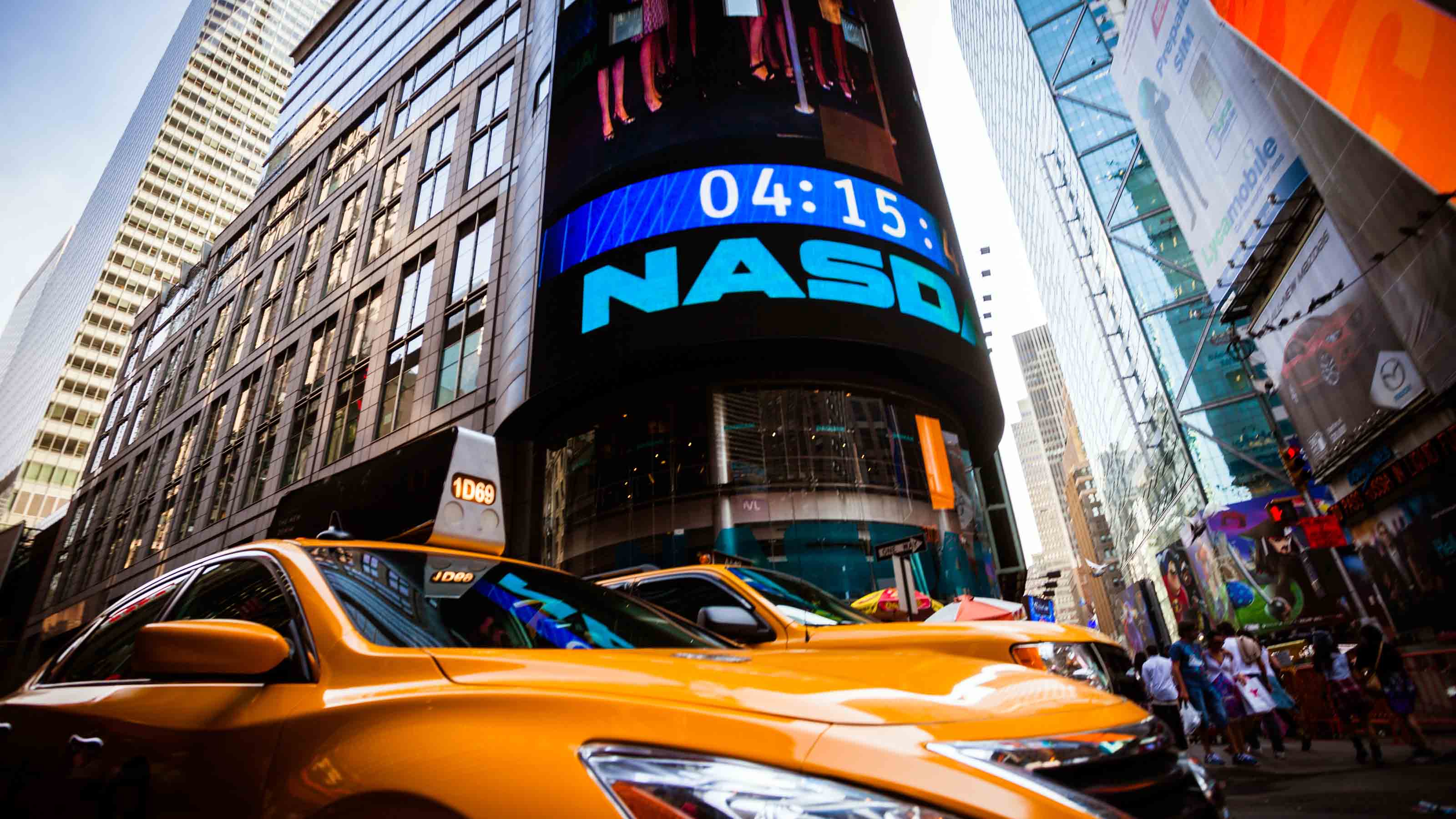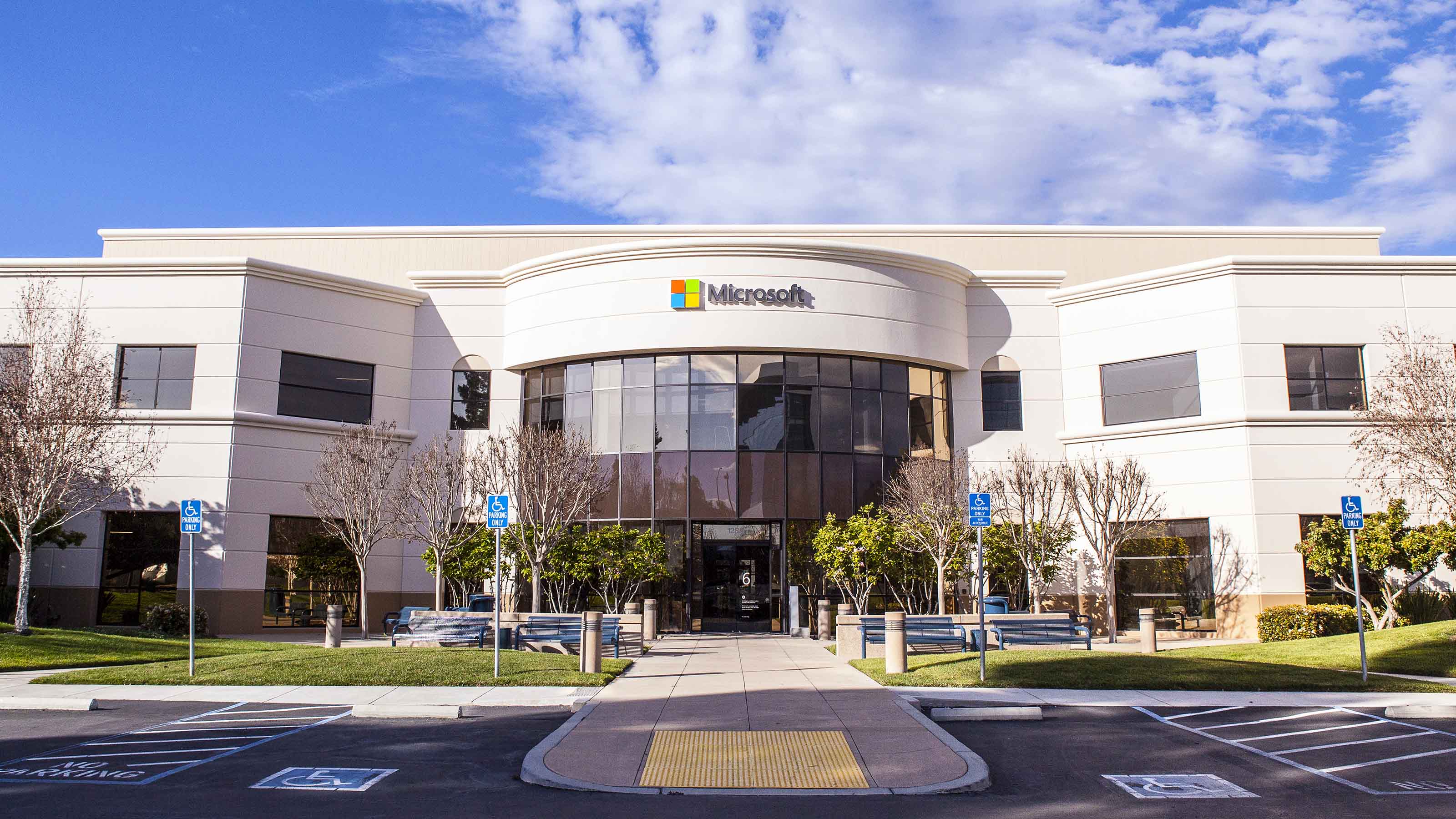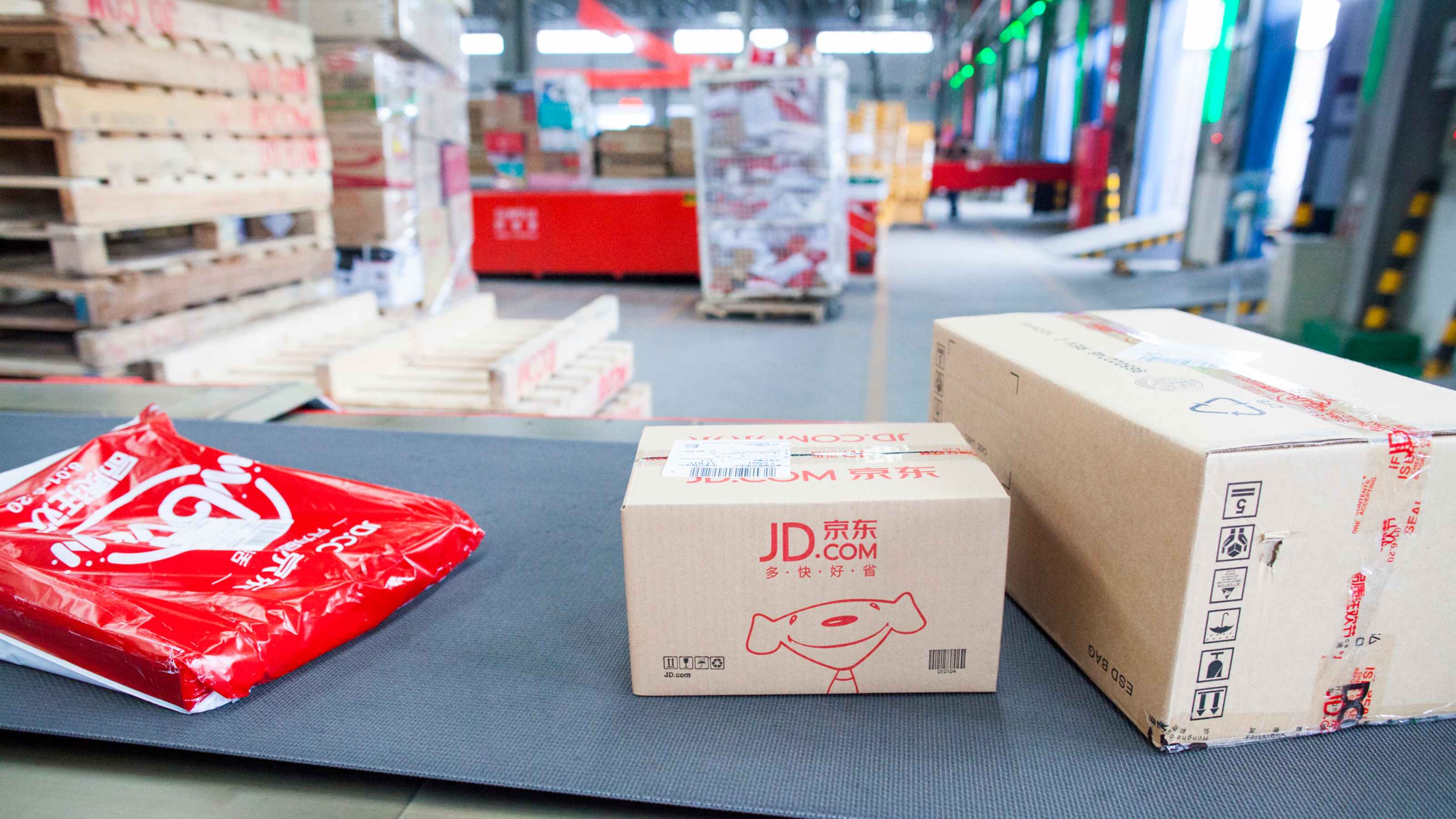The Pros' Picks: The 11 Best Nasdaq Stocks You Can Buy
A sharp pivot away from growth has given Wall Street a much different perspective on what constitutes today's best Nasdaq stocks. Take a look.


Profit and prosper with the best of Kiplinger's advice on investing, taxes, retirement, personal finance and much more. Delivered daily. Enter your email in the box and click Sign Me Up.
You are now subscribed
Your newsletter sign-up was successful
Want to add more newsletters?

Delivered daily
Kiplinger Today
Profit and prosper with the best of Kiplinger's advice on investing, taxes, retirement, personal finance and much more delivered daily. Smart money moves start here.

Sent five days a week
Kiplinger A Step Ahead
Get practical help to make better financial decisions in your everyday life, from spending to savings on top deals.

Delivered daily
Kiplinger Closing Bell
Get today's biggest financial and investing headlines delivered to your inbox every day the U.S. stock market is open.

Sent twice a week
Kiplinger Adviser Intel
Financial pros across the country share best practices and fresh tactics to preserve and grow your wealth.

Delivered weekly
Kiplinger Tax Tips
Trim your federal and state tax bills with practical tax-planning and tax-cutting strategies.

Sent twice a week
Kiplinger Retirement Tips
Your twice-a-week guide to planning and enjoying a financially secure and richly rewarding retirement

Sent bimonthly.
Kiplinger Adviser Angle
Insights for advisers, wealth managers and other financial professionals.

Sent twice a week
Kiplinger Investing Weekly
Your twice-a-week roundup of promising stocks, funds, companies and industries you should consider, ones you should avoid, and why.

Sent weekly for six weeks
Kiplinger Invest for Retirement
Your step-by-step six-part series on how to invest for retirement, from devising a successful strategy to exactly which investments to choose.
The best Nasdaq stocks for new money look quite different than they did just a few months ago.
Last year, the technology-heavy Nasdaq Composite, led by mega-market-value stocks such as the FAANGs – Facebook (FB), Apple (AAPL), Amazon.com (AMZN), Netflix (NFLX) and Google parent Alphabet (GOOGL) – could almost do no wrong.
Indeed, the Nasdaq gained almost 44% on a price basis alone in 2020, leaving the broader S&P 500 (+7.3%) and blue-chip Dow Jones Industrial Average (+16.3%) far behind in its wake.
But now inflation fears and a general rotation away from growth stocks toward more value-oriented names has made finding winning Nasdaq stocks a much tougher beat. The index was up a meager 1.1% for the year-to-date through May 12. That compares unfavorably to gains of 8.2% for the S&P 500 and 9.7% for the Dow, respectively.
Although many of last year's best Nasdaq stocks have continued their winning ways, it has been harder to find promising prospects off the beaten path. So we decided to suss out some names that Wall Street analysts identify as being the best Nasdaq stocks.
To that end, we used S&P Global Market Intelligence to screen the Nasdaq Composite for stocks with the highest-conviction Strong Buy recommendations on the Street.
Here's how it works: S&P Global Market Intelligence surveys analysts' stock ratings and scores them on a five-point scale, where 1.0 equals Strong Buy and 5.0 means Strong Sell. Any score of 2.5 or lower means that analysts, on average, rate the stock a Buy. The closer the score gets to 1.0, the stronger the Strong Buy call.
We limited ourselves to stocks with at least 10 Strong Buy recommendations. Then we dove into analysts' research, fundamental factors and analysts' estimates.
The result? This list of 11 Nasdaq stocks with Strong Buy consensus recommendations. True, it's only a beginning, but this isn't a bad place to start when looking for the best Nasdaq stocks to buy during this tough time for the index.
Share prices are as of May 12. Data and analysts' recommendations are courtesy of S&P Global Market Intelligence, unless otherwise noted. Stocks are listed by strength of analysts' consensus recommendation, from weakest to strongest.

#11: Gaming and Leisure Properties
- Market value: $10.5 billion
- Analysts' ratings: 13 Strong Buy, 3 Buy, 2, Hold, 0 Sell, 0 Strong Sell
- Analysts' average recommendation: 1.39
Gaming and Leisure Properties (GLPI, $44.30) is the lone real estate investment trust (REIT) represented among the best Nasdaq stocks. And it's a favorite in the casino real estate industry thanks to both a snazzy dividend yield and attractive growth prospects coming out of the pandemic.
The company, whose properties include the Belle of Baton Rouge and Argosy Casino Riverside in Missouri, collected 100% of its rents in 2020, says UBS Global Research analyst Robin Farley, who is one of just two analysts with a Hold-equivalent rating on Gaming and Leisure Properties.
Stifel's Simon Yarmak is among the more crowded GLPI bull camp, citing "an attractive portfolio of regional assets, which has returned to strong operating performance."
Perhaps most optimistic of all is Raymond James analyst RJ Milligan, whose Strong Buy call and $52 price target (17% upside) is based partly on the stock "trading at an unwarranted discount."
"With zero exposure to the Las Vegas Strip, GLPI's assets have seen a stronger recovery than the other gaming REITs," Milligan says in a client note.
Lastly, Mizuho Securities initiated coverage of Gaming and Leisure Properties at Buy in late March, citing its unique attributes in an industry set to benefit from a recovery in consumer spending and gaming revenue.
"GLPI is the most diversified of the three Gaming REITs, with strong underlying tenant credit and structural lease enhancements, resulting in a lower-risk platform that we believe is under-appreciated by the market," writes Mizuho analyst Haendel St. Juste.
An added bonus for income investors: GLPI's dividend yield of 5.9% towers over that of the Nasdaq Composite, which offers a comparatively puny 0.5%.

#10: Microsoft
- Market value: $1.8 trillion
- Analysts' ratings: 25 Strong Buy, 10 Buy, 2, Hold, 0 Sell, 0 Strong Sell
- Analysts' average recommendation: 1.38
Microsoft (MSFT, $239.00) might be second only to Apple when it comes to market value, but it beats the iPhone maker handily when it comes to analysts' ardor.
What gives MSFT the edge over Apple (Buy) when it comes to the Street's sentiment is its overwhelming success in cloud services.
Wedbush analyst Daniel Ives says Microsoft's most recent quarterly results were "another cloud masterpiece as MSFT is continuing to see massive cloud momentum that is still in the early days of playing out." Ives rates shares at Outperform (equivalent of Buy).
CFRA Research analyst John Freeman (Strong Buy) adds that investors shouldn't lose sight of the company's other growth areas. For example, the launch of the Xbox Series X gaming console drove 51% year-over-year growth in Xbox content and services revenue in the final calendar quarter of 2020.
However, the bottom line is that MSFT's bottom line remains keyed to the cloud.
"Microsoft has refocused the company around Azure and Office 365, which we view as several large, multi-year secular growth engines," writes Stifel analyst Brad Reback (Buy).
And let's not forget MSFT's suitability for income investors. This component of the Dow Jones Industrial Average offers a modest dividend yield of 0.9%, but it has been improving its payout at a robust clip of nearly 9% compounded annually over the past five years.
On the downside, few Nasdaq stocks look cheap these days, and MSFT is no exception. Shares trade at almost 30 times 2022 estimated earnings, per S&P Global Market Intelligence. That might be a bit rich given analysts' average annual EPS growth forecast of 15.6% over the next three to five years.

#9: Wix.com
- Market value: $13.7 billion
- Analysts' ratings: 13 Strong Buy, 5 Buy, 1, Hold, 0 Sell, 0 Strong Sell
- Analysts' average recommendation: 1.37
Shares in Wix.com (WIX, $239.68) tumbled sharply following its May 11 earnings report despite posting a narrower-than-expected loss, as investors were rattled by some mixed full-year guidance.
But the market's reaction didn't push analysts away from their bullish outlook on the stock. Wix.com, which operates a cloud-based platform that enables users to create websites with integrated payments and other applications, is simply too well-positioned for the post-pandemic era, they say.
"We see heightened business investment in online presence post the pandemic as likely to persist for multiple years as consumer habits continue to shift online, and believe this is further supported by continued strength in new business creation, which we believe will have increasingly greater focus on online presence and ecommerce," writes Wedbush analyst Ygal Arounian (Outperform).
Keybanc analysts, for their part, maintained their Overweight (Buy) rating on WIX following its first-quarter earnings release.
As part of the company's focus on new business creation, Wix in early March announced the acquisition of SpeedETab, an ordering and payment technology provider for restaurants. Terms of the deal were not disclosed.
"The SpeedETab acquisition was a logical addition to the company's expanding presence in commerce (both online and offline) and specifically restaurants," writes William Blair analyst Matthew Pfau (Outperform). "The improvement to its Wix Restaurants solution appears timely considering the likelihood of reopenings over the coming months as we approach the end of the pandemic."
The post-earnings rout leaves shares with high implied upside. Indeed, analysts' average target of $352.11 gives WIX implied upside of 47% over the next 12 months or so, easily putting it among the best Nasdaq stocks in the pros' eyes.

#8: Axsome Therapeutics
- Market value: $2.1 billion
- Analysts' ratings: 11 Strong Buy, 2 Buy, 0, Hold, 1 Sell, 0 Strong Sell
- Analysts' average recommendation: 1.36
Analysts are amped that Axsome Therapeutics (AXSM, $57.01), a small-cap biotechnology company, looks about set to hit the market with a promising new drug.
Axsome's product pipeline includes therapies in various stages of development to treat migraine, Alzheimer's disease agitation and narcolepsy, among other illnesses. But it's the company's progress with a treatment for major depressive disorder that has the Street in love with this stock.
The Food and Drug Administration in April accepted the company's new drug application for AXS-05 with priority review. Analysts are optimistic that the highly promising therapy could be given the green light for sale and marketing before too long.
"We remain bullish on the potential for AXS-05 to be a disruptive option in a massive market with a significant unmet need," writes William Blair analyst Myles Minter. "We reiterate our Outperform rating on Axsome with the potential for the company to transition to a commercial entity by year end."
Not everyone is quite so optimistic, however. Bank of America Global Securities rates shares at Underperform (the Street's lone Sell call), saying AXSM's second-half introductions of drugs for depression and migraine are likely to disappoint.
"Both launch opportunities are in markets where AXSM's drugs are undifferentiated vs. other branded drugs," writes BofA analyst Ashwani Verma. "Moreover, competitors have dedicated significant resources on commercialization."
Even with that dissent, the Street's average target price of $143.43 gives the stock implied upside of more than 150% in the next 12 months or so, which makes it the best Nasdaq stock on this list in that respect.

#7: PDC Energy
- Market value: $4.0 billion
- Analysts' ratings: 11 Strong Buy, 3 Buy, 1, Hold, 0 Sell, 0 Strong Sell
- Analysts' average recommendation: 1.33
Energy stocks aren't well-represented among the best Nasdaq stocks, even though they're some of Wall Street's favorite recovery plays. And few of them boast a higher rating from analysts than PDC Energy (PDCE, $40.27).
Analysts like the independent oil & gas exploration and production company's base of assets. Moreover, they love its ability to punch well above its weight in generating levered free cash flow (FCF) – the cash left over after capital investments, dividend payments and payments to creditors.
"In our view, PDCE offers investors a compelling asset mix between the Delaware Basin and Niobrara Shale in the DJ Basin with a resilient asset base and a top-tier balance sheet," writes Stifel analyst Michael Scialla, who rates the stock at Buy.
Goldman Sachs analyst Neil Mehta recommended that clients buy PDCE during the March pullback thanks to his expectation that the firm will produce $1.1 billion in FCF over the next two years. Note that $1.1 billion in FCF would represent about a quarter of PDCE's entire market value.
Lastly, the Street applauds the company's debt-reduction efforts and its intention to return $120 million in cash to shareholders through a stock repurchase plan and a new dividend program set to launch later this year.
As for valuation, shares still look attractive even after doubling so far in 2021. PDCE trades at just 8.2 times estimated earnings for 2022, while analysts project average annual EPS growth of 7% over the next three to five years.
The Street's average target price of $48.19 gives PDCE implied upside of roughly 20% over the next year or so.

#6: JD.com
- Market value: $111.5 billion
- Analysts' ratings: 28 Strong Buy, 8 Buy, 2, Hold, 0 Sell, 0 Strong Sell
- Analysts' average recommendation: 1.32
JD.com (JD, $71.25), the Chinese e-commerce giant, is pouring money back into building the business. However, some analysts remain on the sidelines over regulatory risk and a lack of cash being returned to shareholders.
"We expect JD to continue reinvesting its free cash flow into the business and project no dividends over our forecast period," writes CFRA Research analyst Aaron Ho. "We reiterate our Hold opinion on JD following China's recent proposal of new e-commerce antitrust law."
Ho, however, is in the minority on the Street, where the great majority of analysts are bullish on JD, thanks in part to its outsized growth prospects.
"JD operates in a large and growing market with controlled logistics and an initial first-party model that has grown into a first-party/third-party hybrid," writes Stifel analyst Scott Devitt (Buy). "The China e-commerce market exceeds $1 trillion in sales with online penetration of above 20%, and we believe JD is well-positioned to continue to participate in China consumer and retail expansion for years to come."
Indeed, thanks to that massive market opportunity, analysts expect JD to generate average annual EPS growth of 31% over the next three to five years.
Like many of the best Nasdaq stocks on this list, JD doens't necessarily look cheap. But Wall Street likes the valuation. That's because, after falling 19% for the year-to-date, JD stock trades at less than 28 times analysts' estimated earnings for 2022 – arguably quite the bargain in light of that long-term EPS growth forecast.
Analysts' average price target of $108.36 gives JD stock implied upside of more than 50% in the next 12 months or so.

#5: Alphabet
- Market value: $1.5 trillion
- Analysts' ratings: 32 Strong Buy, 12 Buy, 1, Hold, 0 Sell, 0 Strong Sell
- Analysts' average recommendation: 1.31
It's no secret that the Street adores Google parent Alphabet (GOOGL, $2,200.25) and has been intensely bullish for a while. Indeed, analysts' consensus recommendation hasn't fallen below Strong Buy for well more than a year.
And, heck, what's not to like? The company, with a market value of roughly $1.5 trillion, is forecast to generate average annual EPS growth of almost 20% over the next three to five years. That's heady stuff for a company this large.
But as Argus Research points out, Alphabet's immense earnings power is a natural consequence of its basic business model.
"We see Alphabet as one of the tech industry's leaders, along with Facebook, Apple, Amazon, and Microsoft," writes Argus Research analyst Joseph Bonner (Buy). "These companies have come to dominate new developments in mobile, public cloud, and big data analytics, as well as emerging areas such as artificial intelligence and virtual/augmented reality."
As attractive as GOOGL remains for the longer term, it has been more than holding up its own end in the short term too. The stock is up about 25% for the year-to-date, vs. a gain of about 1% for the Nasdaq. Some analysts would attribute that resilience in part to shares looking like a bargain compared to many Nasdaq stocks – and even the broader market.
"We continue to favor Google as a core large-cap growth holding given the strong digital advertising backdrop, continued strength from Cloud, ongoing share repurchases (with the newly authorized $50 billion program) and a reasonable valuation," writes Canaccord Genuity analyst Maria Ripps (Buy).
With shares trading at 24 times estimated earnings for 2022, you could even say they're cheap.
GOOGL's price/earnings-to-growth (PEG) ratio – which measures how expensive a stock is relative to its growth prospects – stands at 1.2. That represents a 25% discount to the S&P 500, per Refinitiv Stock Reports Plus.

#4: Health Catalyst
- Market value: $2.1 billion
- Analysts' ratings: 11 Strong Buy, 4 Buy, 0, Hold, 0 Sell, 0 Strong Sell
- Analysts' average recommendation: 1.27
Health Catalyst (HCAT, $48.16) provides a cloud-based data platform, analytics software and professional services for hospitals and other healthcare organizations. The idea is that a partnership with this software-as-a-service (SaaS) company can help healthcare providers improve patient outcomes.
Canaccord Genuity has HCAT as one of its top healthcare IT stocks for 2021. Shares might look pricey compared with those of its sector peers, but Canaccord says they're worth it.
"We believe a premium valuation is justified for Health Catalyst as it provides 'next generation' analytics to customers," says Canaccord (Buy). "Furthermore, we are expecting HCAT to generate revenue growth of 22% and 21% in 2021 and 2022, respectively, while its peer group is expected to generate average revenue growth of 9% in each of those years, or less than half of HCAT's estimated growth rate."
Stifel chimes in with a Buy rating of its own.
"Our thesis reflects HCAT's market leadership in the Healthcare Analytics market," writes analyst David Grossman. "We expect HCAT to maintain 20%-plus organic growth through a combination of new clients and contractual price escalators."
And at Raymond James, analyst John Ransom (Strong Buy) expects business to accelerate in the coming months as the COVID-19 crisis gradually abates.
"We continue to expect to see rising demand for the Health Catalyst suite of solutions going forward, particularly given the resurgence of both payor and provider focus on value-based care, which the company's data and analytics play directly into," Ransom says.

#3: Builders FirstSource
- Market value: $10.0 billion
- Analysts' ratings: 10 Strong Buy, 3 Buy, 0, Hold, 0 Sell, 0 Strong Sell
- Analysts' average recommendation: 1.23
It's no secret the housing market is red-hot right now, and that has analysts feeling extremely confident in the outlook for Builders FirstSource (BLDR, $46.64).
The company, which manufactures and supplies building materials, manufactured components and construction services to professional homebuilders, has built itself up through small acquisitions over the years. That's paying off now amid a nationwide shortage of new homes.
Most recently, the company acquired John's Lumber, a family-owned supplier of lumber and other building materials, to boost its presence in Michigan. John's generated almost $50 million in revenue over the past 12 months, BLDR said. Other terms of the deal were not disclosed.
It's a good time to be bulking up, analysts say, given the tremendous economic tailwinds at the company's back.
"Two macroeconomic trends are driving historical financial performance, including: 1.) significant demand for new home construction; and 2.) historically high lumber commodity prices," writes B. Riley Securities analyst Alex Rygiel (Buy).
"We anticipate new home construction activity to remain brisk for some time, however, there is increasing risk that we are nearing the peak in lumber commodity prices," Rygiel adds. "With that said, we continue to believe BLDR can deliver superior financial performance in 2021 and 2022 even at lower lumber prices, and its valuation remains attractive."
Analysts have had a consensus Strong Buy recommendation on the stock for more than nine months now, and it has been paying off. BLDR is up more than 40% over the past six months, and 17% for the year-to-date.
The Street expects BLDR to be one of the best Nasdaq stocks to buy in the year ahead. Analysts' average target price of $66.58 gives BLDR implied upside of more than 40% in the next year or so.

#2: Amazon.com
- Market value: $1.6 trillion
- Analysts' ratings: 36 Strong Buy, 11 Buy, 0, Hold, 0 Sell, 0 Strong Sell
- Analysts' average recommendation: 1.23
Amazon.com (AMZN, $3,151.94) lags behind only Apple and Microsoft on the list of largest U.S. companies by market value, but it's ahead of both in the pros' eyes.
Its average recommendation score of 1.23 hinges on a whopping 36 Strong Buy ratings. By comparison, AAPL gets 23 Strong Buy calls, while MSFT – as noted above – claims 25.
And is it any wonder? We're talking about a company with a market capitalization of $1.6 trillion that analysts expect to deliver average annual EPS growth of almost 35% over the next three to five years.
So much for the law of large numbers.
AMZN was a juggernaut even before COVID-19 swept the globe and upended so much of what we thought we knew about the future of e-commerce. Now, more than a year into the pandemic, it's clear the company has only grown stronger.
"Amazon is one of the primary beneficiaries of COVID given accelerated e-commerce sales growth and Prime membership adoption, as well as the digital transformation that will accelerate cloud services adoption," writes Stifel analyst Scott Devitt (Buy) in a note to clients.
Devitt also reminds clients that the pandemic sparked online purchases of grocery and consumables – categories Amazon struggled to penetrate for years – which should support its next leg of retail growth.
And let's not forget the company's leadership in cloud services. With e-commerce, cloud and an emerging high-margin marketing business, Amazon "remains well positioned in a recovery scenario given cloud services, marketing services and certain e-commerce categories/geographies are still in the early phases of development," the analyst writes.
With an average price target of $4,238.46, analysts give AMZN stock implied upside of around 35% in the next 12 months or so. With shares off about 3% so far in 2021, you can practically hear the Street shouting, "Buy the dip!"

#1: Rocket Pharmaceuticals
- Market value: $2.6 billion
- Analysts' ratings: 10 Strong Buy, 2 Buy, 0, Hold, 0 Sell, 0 Strong Sell
- Analysts' average recommendation: 1.17
Rocket Pharmaceuticals (RCKT, $41.61) is another small biotech with promising drugs under development, and it currently tops this list of the best Nasdaq stocks. It's ultra-low score of 1.17 indicates a strong Strong Buy.
However, as with all such stocks in its space, caution is warranted. Names like RCKT tend to be a bit speculative, after all.
Regardless, analysts are plenty bullish on the name, which focuses on developing gene therapies for rare and devastating pediatric diseases.
The Street's Strong Buy rating remained in place even after the company recently received some less-than-great news. In early May, Rocket Pharma disclosed that the FDA put a clinical hold on trials for the development of its RP-A501 drug to treat Danon disease: a rare genetic condition characterized by weakening of the heart muscle.
"The clinical hold on RP-A501 (Danon disease) is less-than-ideal but not thesis-changing for us," writes Stifel analyst Dae Gon Ha (Buy). "Management anticipates enrollment delay of one quarter."
The bigger picture, Ha says, is that RCKT's "promising early data keeps us optimistic of future updates and the odds of regulatory approval."
At William Blair equity research, analyst Raju Prasad (Outperform) cites the company's "sound strategic approach" to the use of its platform, as well as favorable early data.
Note well that Rocket Pharma isn't forecast to be profitable until 2024. Additionally, although it has a very high-conviction average recommendation of Strong Buy, only 12 analysts cover the stock.
As we said, these sorts of stocks tend to be speculative bets, and that means they also tend to be volatile. Shares more than doubled over the past 52 weeks, and yet are also off nearly 25% for the year-to-date.
Analysts' average target price of $70.91 gives RCKT implied upside of around 70% over the next year or so. That could very well come to pass. Just make sure this name is a solid fit for your own personal risk profile before pulling the trigger.
Profit and prosper with the best of Kiplinger's advice on investing, taxes, retirement, personal finance and much more. Delivered daily. Enter your email in the box and click Sign Me Up.

Dan Burrows is Kiplinger's senior investing writer, having joined the publication full time in 2016.
A long-time financial journalist, Dan is a veteran of MarketWatch, CBS MoneyWatch, SmartMoney, InvestorPlace, DailyFinance and other tier 1 national publications. He has written for The Wall Street Journal, Bloomberg and Consumer Reports and his stories have appeared in the New York Daily News, the San Jose Mercury News and Investor's Business Daily, among many other outlets. As a senior writer at AOL's DailyFinance, Dan reported market news from the floor of the New York Stock Exchange.
Once upon a time – before his days as a financial reporter and assistant financial editor at legendary fashion trade paper Women's Wear Daily – Dan worked for Spy magazine, scribbled away at Time Inc. and contributed to Maxim magazine back when lad mags were a thing. He's also written for Esquire magazine's Dubious Achievements Awards.
In his current role at Kiplinger, Dan writes about markets and macroeconomics.
Dan holds a bachelor's degree from Oberlin College and a master's degree from Columbia University.
Disclosure: Dan does not trade individual stocks or securities. He is eternally long the U.S equity market, primarily through tax-advantaged accounts.
-
 Dow Leads in Mixed Session on Amgen Earnings: Stock Market Today
Dow Leads in Mixed Session on Amgen Earnings: Stock Market TodayThe rest of Wall Street struggled as Advanced Micro Devices earnings caused a chip-stock sell-off.
-
 How to Watch the 2026 Winter Olympics Without Overpaying
How to Watch the 2026 Winter Olympics Without OverpayingHere’s how to stream the 2026 Winter Olympics live, including low-cost viewing options, Peacock access and ways to catch your favorite athletes and events from anywhere.
-
 Here’s How to Stream the Super Bowl for Less
Here’s How to Stream the Super Bowl for LessWe'll show you the least expensive ways to stream football's biggest event.
-
 Dow Leads in Mixed Session on Amgen Earnings: Stock Market Today
Dow Leads in Mixed Session on Amgen Earnings: Stock Market TodayThe rest of Wall Street struggled as Advanced Micro Devices earnings caused a chip-stock sell-off.
-
 Nasdaq Slides 1.4% on Big Tech Questions: Stock Market Today
Nasdaq Slides 1.4% on Big Tech Questions: Stock Market TodayPalantir Technologies proves at least one publicly traded company can spend a lot of money on AI and make a lot of money on AI.
-
 Fed Vibes Lift Stocks, Dow Up 515 Points: Stock Market Today
Fed Vibes Lift Stocks, Dow Up 515 Points: Stock Market TodayIncoming economic data, including the January jobs report, has been delayed again by another federal government shutdown.
-
 Stocks Close Down as Gold, Silver Spiral: Stock Market Today
Stocks Close Down as Gold, Silver Spiral: Stock Market TodayA "long-overdue correction" temporarily halted a massive rally in gold and silver, while the Dow took a hit from negative reactions to blue-chip earnings.
-
 Nasdaq Drops 172 Points on MSFT AI Spend: Stock Market Today
Nasdaq Drops 172 Points on MSFT AI Spend: Stock Market TodayMicrosoft, Meta Platforms and a mid-cap energy stock have a lot to say about the state of the AI revolution today.
-
 S&P 500 Tops 7,000, Fed Pauses Rate Cuts: Stock Market Today
S&P 500 Tops 7,000, Fed Pauses Rate Cuts: Stock Market TodayInvestors, traders and speculators will probably have to wait until after Jerome Powell steps down for the next Fed rate cut.
-
 S&P 500 Hits New High Before Big Tech Earnings, Fed: Stock Market Today
S&P 500 Hits New High Before Big Tech Earnings, Fed: Stock Market TodayThe tech-heavy Nasdaq also shone in Tuesday's session, while UnitedHealth dragged on the blue-chip Dow Jones Industrial Average.
-
 Dow Rises 313 Points to Begin a Big Week: Stock Market Today
Dow Rises 313 Points to Begin a Big Week: Stock Market TodayThe S&P 500 is within 50 points of crossing 7,000 for the first time, and Papa Dow is lurking just below its own new all-time high.
